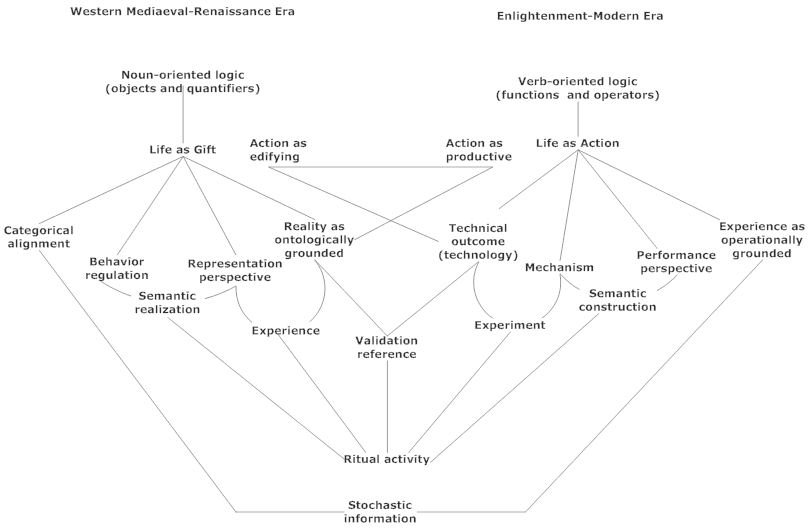| Mediaeval-Renaissance Era | Enlightenment-Modern Era | Discussion |
| Noun-oriented logic | Verb-oriented logic | From quantificational logic to algebraic geometry and calculus |
| Life as gift | Life as action | Economic transformation from gift-agricultural to profit-merchant economy |
| Action as edifying | Action as productive | Cultural focus organized around saints to around inventor-explorers |
| Categorical alignment | Technical outcome | Macrocosmic-microcosmic relationships replaced by concern for quantification of process outcomes |
| Behavior regulation | Mechanism | Personal asceticism vs. clock-work universe |
| Representation perspective | Performance perspective | Religious formalism, especially in art, superseded by impressionistic representations |
| Reality as ontologically grounded | Experience as operationally grounded | Meaning results from making something real vs. Significance as evaluation of function |
| Semantic realization | Semantic construction | Truth claims based on experience are limited to formalized contexts |
| Experience | Experiment | During the renaissance validity was determined by ontology, in the modern era, validation is a result |
| Validation reference | Validation reference | Ritual activity as method for expressing the content of meaning vs. Ritual activity as investigation of potential values |
| Ritual activity | Ritual activity | Uncontrollability of alignments of cosmological categories (notions of luck) give way to unpredictable events and unintended consequences, in modern cosmology, a big bang |
| Stochastic information | Stochastic information | Uncontrollability of alignments of cosmological categories (notions of luck) give way to unpredictable events and uninteneded consequences, in modern cosmology, a big bang |
